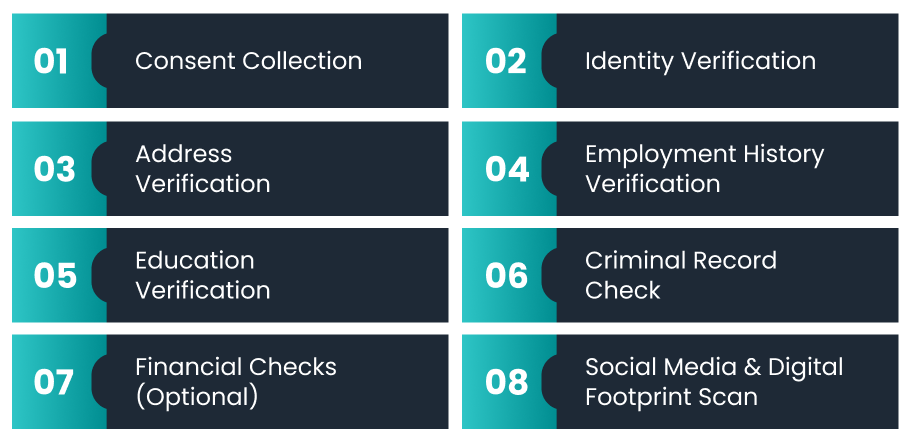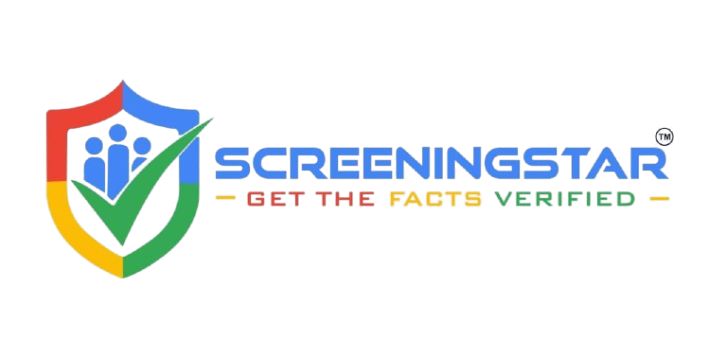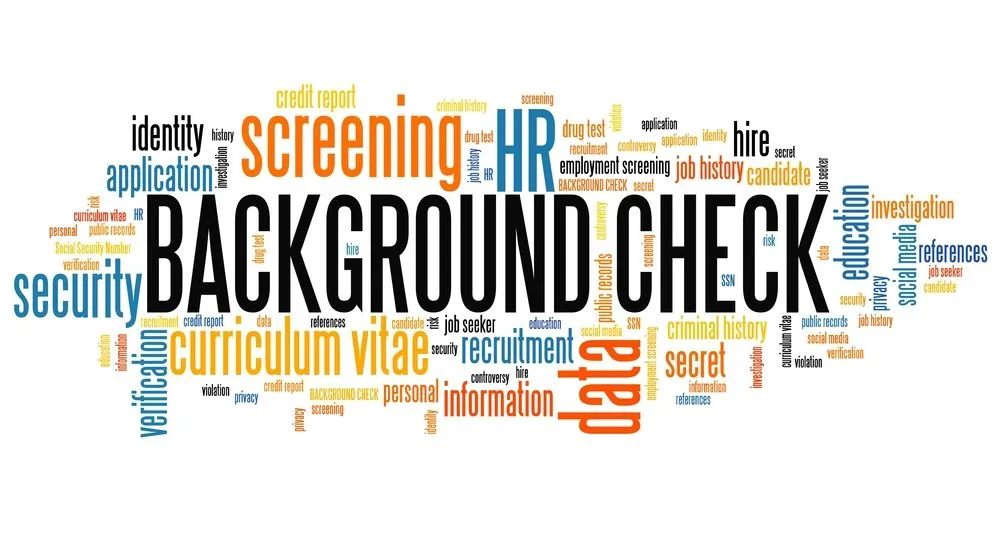Hiring is one of the most impactful decisions an organization makes. One great hire can elevate teams, push innovation, and increase revenue. But a wrong hire?
That can drain productivity, create legal liabilities, and damage a brand’s trust.
Today, hiring has evolved beyond resumes and interviews. Why?
Because 42% of resumes contain discrepancies — from exaggerated work experience to completely fake degrees. HR leaders no longer rely solely on what candidates claim. Instead, they focus on what they can verify.
That means background verification (BGV) is not optional — it’s a strategic necessity.
A structured HR Checklist before the Offer Letter reduces risk, improves workforce quality, and strengthens compliance. Below is the most practical and complete checklist every HR professional must follow in 2025 and beyond.
Why Verification Before the Offer Matters
Some companies verify only after onboarding — but here’s the risk:
| Risk | If Verified Only After Onboarding |
|---|---|
| Hiring fraud detected | Offer revoked → Hiring effort wasted |
| Compliance failure | Legal penalties + Reputation loss |
| Role-critical skill mismatch | Productivity drop from Day 1 |
| Misconduct or safety concerns | Organizational trust damaged |
Smart HR teams verify before the job offer — ensuring • fair selection • proper compliance • risk-free hiring.
The Ultimate HR Verification Checklist Before the Job Offer

1. Identity Verification
Identity is the foundation of trust. Fraudulent identities can lead to major compliance breaches and security issues.
What HR should verify:
- Aadhaar Card / PAN Card
- Passport (especially for India + global roles)
- Driving License (if mobility is required)
- Valid government-approved ID combinations
Why it matters :
- Prevents impersonation
- Ensures candidate is who they claim to be
- Aligns with labour & compliance mandates
Modern HRs also prefer digital identity verification using OCR + face match to reduce manual errors.
2. Education Verification
Education discrepancies are one of the top hiring fraud issues.
Fake degrees and inflated qualifications are increasingly common in competitive job markets.
HR must verify:
- Highest qualification relevant to the job
- University/Board recognition status
- Year of passing, registration numbers
- Online secure verification sources (NSDL, Digilocker etc.)
Why it matters :
- Ensures candidates have the capabilities required
- Protects against bogus certifications
- Essential for compliance in regulated sectors (IT, BFSI)
Pro Tip: Always verify directly with universities or through approved verification agencies.
3. Employment Verification
Past experience is the biggest indicator of future job performance.
However, candidates sometimes inflate:
- Tenure
- Designations
- Salary figures
- Responsibilities handled
Must-verify elements:
- Company name + employment period
- HR or manager references
- Official relieving/experience documents
- Reason for exit
- Job performance, behavior & rehire status
Why it matters
- Prevents hiring people who misrepresent critical experience
- Reveals behaviour, ethics, and cultural fit
- Gives HR visibility into actual responsibilities — not just buzzwords on resumes
4. Criminal Background Check
Workplace safety ≠ negotiable.
Organizations must ensure employees have no criminal history linked to:
- Fraud
- Harassment
- Violence
- Cybercrimes
- Financial misconduct
Checklist:
- Police record and court database checks
- Sex offender registry (role-based)
- Global watchlists for international hiring (OFAC etc.)
Why it matters
- Prevents harassment & safety threats
- Protects company assets
- Avoids lawsuits and compliance failures
This is mandatory in several critical roles like childcare, finance, client data handling, government projects.
5. Address Verification
This is crucial for:
- Logistics jobs
- Remote employees
- Security-sensitive work
- Contract roles
HR must verify:
- Current address
- Permanent address
- Documentary proofs (Rent agreements/Electricity bills)
- In-person verification for high-risk roles
Why it matters
- Helps in building employment history trail
- Supports legal documentation and notice process
- Ensures candidate traceability for compliance and security
6. Document Authentication
It’s surprisingly easy to doctor:
- Salary slips
- Bank statements
- Experience letters
- ID proofs
- Certificates
HR must ensure:
- No document tampering or forgery
- Salary slips match bank credits
- Digital certificates are licensed and valid
Why it matters
- Protects against financial fraud
- Maintains fairness in compensation mapping
- Confirms previous job legitimacy
Nearly 1 out of 5 candidates submits altered documents — especially relating to pay.
7. Financial & Credit Check (Role-Based)
Not needed for every hire — but essential for:
- Finance roles
- Cash handling jobs
- Senior leadership
- Data-sensitive positions
What to verify:
- Credit score history
- Loan defaults
- Past fraud records
- Financial stability signals
Why it matters
- Builds trust for high-responsibility hiring
- Reduces internal fraud & mishandling risks
8. Social Media & Digital Footprint Check
A candidate’s online conduct can reveal more than interviews.
What to check:
- Hate speech, discrimination, workplace harassment
- Violent or illegal behaviour
- NDA breaches, confidential data leaks
- Positive indicators like personal branding & professional content
Why it matters
- Strengthens culture fit
- Protects employer reputation
- Prevents future red-flag behaviours
HR should evaluate behaviour, not personal beliefs.
9. Modern Addition: Face Verification for Digital Hiring
Virtual hiring raised a concern:
Is the candidate in the interview the same one joining the job?
Face verification helps:
- Prevent candidate impersonation
- Match face → Government IDs + submitted documents
- Enable remote onboarding with security
- Reduce time, manual errors & conflict resolution
It’s now a standard for fast-growing digital HR leaders.
Benefits of Completing This Checklist Pre-Offer
| Benefit | How It Helps the Organization |
|---|---|
| Reduced hiring risks | Avoids fraud, legal issues & rehiring effort |
| Safer workplace | Better protection for employees & clients |
| Better hiring decisions | Based on validated facts, not assumptions |
| Faster onboarding | Documentation ready before Day 1 |
| Brand trust | Clients prefer verified workforce |
| Higher retention | Good hires stay longer |
No HR leader wants to revoke an offer after joining — it’s expensive for both sides.
This checklist stops that problem completely.
What Happens If HR Skips Verification?
Skipping thorough verification can lead to serious consequences for an organization. Even a single bad hire can have ripple effects across teams, operations, and client relationships. Here’s what could go wrong:
- Workplace harassment
- Fraud or embezzlement
- Client escalation & lost business
- Cybersecurity breaches
- Loss of internal trust among employees
One wrong hire can cost up to 4× their annual salary in productivity loss, rehiring costs, legal fees, and reputational damage. Investing in verification is far cheaper than dealing with these consequences.
Practical Implementation Tips for HR Teams
- Create a standardized digital checklist for recruiters
- Integrate verification early into hiring workflows
- Choose a reliable background verification partner
- Maintain secure and compliant data storage
- Automate follow-ups with candidates for faster TAT
- Train HR teams on fraud detection red flags
Hiring the right candidate goes beyond spotting skills or impressive resumes. Even the most talented individual can pose risks if their background, credentials, or behavior haven’t been verified. A robust pre-offer HR verification process ensures that every hire is trustworthy, compliant, and aligned with your company’s standards.
By verifying talent upfront, organizations protect themselves from legal issues, financial fraud, workplace misconduct, and reputational damage. Moreover, it builds trust internally among teams, ensures workplace safety, and guarantees that quality and compliance standards are upheld.
In short, smart hiring isn’t just about finding talent — it’s about validating that talent so your organization can grow securely and sustainably.




